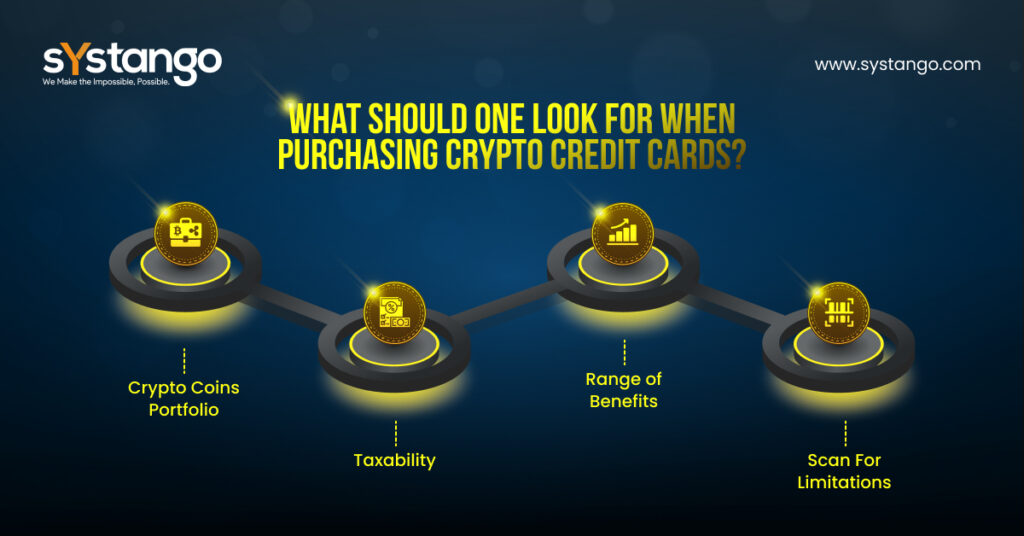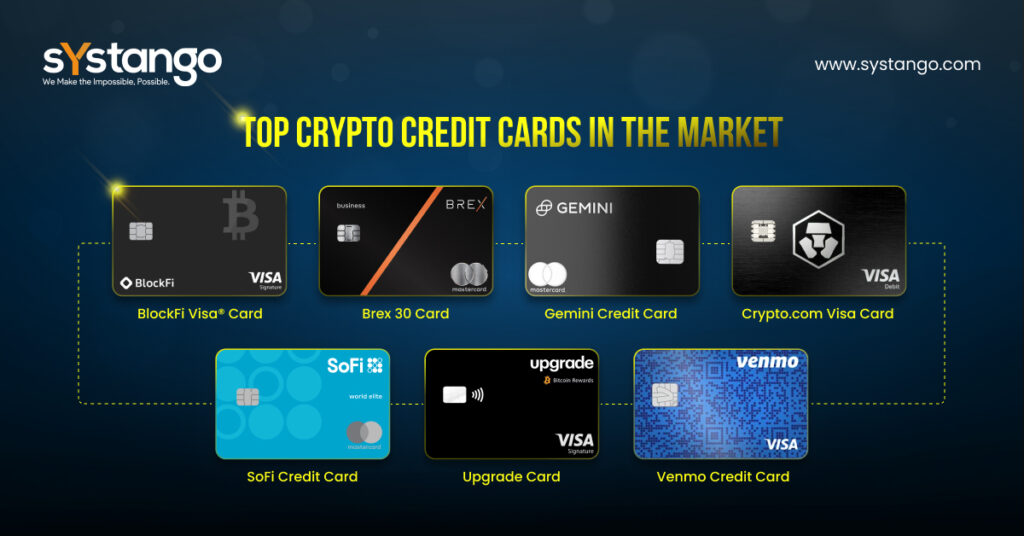How Do Crypto Credit Cards Work? Should You Own One?
Last Updated on: April 26, 2023

Cryptocurrency has emerged to become an incredibly valuable asset in the field of investments. In past years we have witnessed the rise of multiple crypto exchanges and investment portfolios.
As per CoinMarketCap, the value of all available cryptocurrencies crosses over $2 trillion, and it’s only expected to rise. However, not all cryptocurrencies are active or valuable, it’s estimated that there exist around 20,200 cryptocurrencies, out of which approximately 12,000 are active.
Moreover, the same source states that the average daily cryptocurrency trade volume has risen dramatically to $35.7 billion per day.
With such huge market potential, startups and traditional financial services have started their plans to attract a new range of modern customers; who would like to invest and transact in crypto. To follow that, what better than to introduce a credit card that will allow users to make transactions with cryptocurrencies, and get rewarded in the form of crypto rather than cashback or reward points?
Aren’t we all fans of incentive plans? But getting rewarded with ‘cryptocurrency’ for the purchases we may do has a whole other level of excitement to it.
Are you looking to understand exactly how a crypto credit card works? How does its reward system work? And should you be owning one?
We have answered all the questions in this blog. Let’s begin!
How Do Crypto Rewards Work?
Cryptocurrency-based credit cards work exactly as any normal credit card that we have been using for our purchases or transactions. In fact, the rewards associated with crypto credit cards are the same as well. The only difference is that you’re making transactions with cryptocurrency and getting the rewards along the same lines.
However, each crypto card might differ in the way it processes its offerings or rewards plan.
For example, if you possess a Gemini credit card, you will be rewarded with instant cryptocurrency deposits directly into your Gemini account when you swipe your card.
Whereas, if you hold BlockFi’s crypto credit card, you will be served with the following two benefits:
- 2% crypto rewards on all eligible purchases over $30,000 of annual spending
- 1.5% crypto rewards on all eligible purchases.
But as per the rewarding process, the BlockFi credit card rewards the cardholder with its own reward points, which can be later redeemed (or converted) into the user’s choice of cryptocurrency.
Furthermore, you should make a note that crypto credit cards also work as any other credit card; the cardholders must clear off all the balances each month; failing to do so can lead to additional late fees.
In order to pay off your credit card dues, a few crypto credit cards allow you to pay off in US dollars, and some allow you to pay off the dues with cryptocurrency only.
Not to mention, similar to traditional cards, there are fees attached to using the cards and the usage can affect your credit score as well.
What should one look for when purchasing crypto credit cards?

Owning a crypto credit card might look like its complex, but you can check for a few mandate things before applying for one:
Crypto coins Portfolio: There will be a range of cryptocurrencies that any crypto card will offer, you must review the portfolio to ensure you invest in the right coins and can get the required rewards and exchange for them.
Taxability: Unlike traditional credit cards, where cashback and reward points lose their value after a period, crypto rewards hold the potential to rise in value. But, these rewards do fall under the taxing umbrella. If you purchase crypto or even earn a few as a reward, it will be considered an asset. So, you must think through it before owning a crypto credit card.
Range of Benefits: Find your value in the crypto card. Based on the interest, and frequency of transactions (purchases or selling) every offers distinct benefits. Suppose you’re an avid traveler, then you must look for a crypto card that supports such transactions, and if you’re keener towards crypto as an investment, then consider a card that rewards cashback in the form of crypto only.
Scan for Limitations: In many countries, crypto still lies in the gray area, there are varying laws and regulations. This might affect the operations of a crypto credit card. So, before you apply for a crypto credit card, you must go through the terms and conditions and their eligibility in the states. For example, if you own a crypto card in the United States and are using it outside the country, you may be violating international laws, so the rewards earned will be best used within the boundaries of the U.S only.
Will Crypto Credit Cards Become More Popular?
Just like cryptocurrencies, crypto credit cards are here to stay. If you are questioning the legality and future of crypto, you must know, several countries around the world are weighing the chances of legalising crypto transactions. And in fact, the United States, the European Union, and Canada are amongst the list of countries that have already legalised the use of cryptocurrencies.
There are multiple crypto credit cards that have surfaced on the market and have been functioning suitably, with plenty of room for growth in the future(of course!).
The current operations of crypto credit cards must be made easier and maybe more accessible so that the users wouldn’t be selling their crypto asset (dynamic in nature) to make a small purchase. With all the innovations in the cryptocurrency exchange market, legalisations and motivation to make purchases through crypto coins, there’s no doubt crypto credit cards are going to be more popular in future.
Top Crypto Credit Cards In the Market

A range of crypto credit cards are getting popular due to them offering crypto rewards instead of cash back. For those who have an interest in the cryptocurrency sector but feel skeptical about investing in the volatile sector directly, these credit cards are worth considering.
Listed below are some of the top crypto rewards credit cards in the market:
BlockFi Rewards Visa® Signature Card
It comes with an opportunity to figure out if you are eligible for it, post a soft credit check. The annual charges associated with owning a BlockFi Singature Card are zero. On all eligible trades, you get 0.25% back in crypto and 1.5% for every purchase. If you spend in excess of $30,000 annually, the crypto rewards limit becomes 2%.
Brex 30 Card
Brex 30 card does not fetch you cryptocurrency exclusively. However, with it, you get redemptions for Ethereum and Bitcoin along with usual goodies like miles, gift cards, or travel. So, this is the first business card with a crypto redemption option. It has two versions- Brex Card, paid daily, and Brex 30 Card, paid monthly. With the former, no minimum balance requirement is there. On both cards, you can redeem earnings for either Bitcoin or Ethereum.
Gemini Credit Card
It fetches you rewards in Bitcoin and many other cryptocurrencies, much like the BlockFi Visa. Cardholders can use USD to make purchases, but the rewards come in the form of supported crypto assets. It supports two bonus spending categories- groceries and dining. You get 3% back on dining and 2% back on groceries. For other purchases, the reward is 1%. The Gemini Credit Card is devoid of any annual fee. It also has zero foreign transaction fees.
Crypto.com Visa Card
This prepaid crypto debit card comes in 5 distinct card tiers, each offering distinct benefits and perks. These tier levels are decided by the amount you are willing to stake or loan. The lowest tier needs zero staking, while its highest-tier card requires you to stake $400,000 USD. The mid-tier cards have modest staking requirements, and they offer good rewards. Perks include free subscriptions to Netflix, Amazon Prime, airport lounge access, etc.
SoFi Credit Card
It allows active SoFi investment account holders to redeem their points for cryptocurrency. For making a direct deposit with SoFi, you get 3% cash back which remains valid for a year. Thereafter, you get 2% unlimited cash back for purchases when you redeem against investing and saving.
Upgrade Bitcoin Rewards Visa
It gets you unlimited 1.5% back on payments in the form of Bitcoin. Your Bitcoin is held by a firm called NYDIG. You may sell your Bitcoin, but there will be a transaction fee.
Venmo Credit Card
The Venmo credit card fetches you cash back in ranges of 1% to 3%, based on purchase type. Your cash-back rewards can be turned into crypto assets. The supported cryptocurrencies are Bitcoin Cash, Bitcoin, Ethereum, and Litecoin. The crypto conversion is free, but when you sell the assets later, you will be charged a fee.
Note: Before you pick any of these Crypto rewards credit cards, assess and compare the pros and cons well.
Key Takeaway
Crypto credit cards are undoubtedly the most exciting innovation for crypto enthusiasts. These newest incentive-style payment and rewarding options in the field of crypto can attract both – the ones who are curious about crypto but do not jump into the market due to risk tolerance and to ones who believe in crypto and have faith in the longevity of the coins and its growth and profit.
If you go by predictions made by crypto influencers, introduction of crypto rewards in credit cards will not only act as a rewarding benefit addition to users’ wallets but also be helpful in growing their digital assets.
Also, with crypto credit cards offering relatively low risks, they may even appeal to those considering taking their first step in the world of digital tokens.
So, should you own a crypto credit card?
If you’re keen to make crypto investments, you should certainly own a crypto credit card.
However, do manage the excitement of earning rewards in crypto form, remember to spend responsibly and avoid any chances of heavy interest charges. Just be optimistically cautious.
You might ask, why is Systango interested in crypto credit cards? Well, we have always been excited about topics that include blockchain development, crypto investment, web3 development and anything tech. We are just so curious about how and what innovations can be done to build a better version of any business.
Now, since we have answered what is a crypto credit card, and should you own one or not! We will get back to developing an innovative crypto exchange application.
Until next time! Happy crypto transacting!
Read More: What Is The Cost To Develop A Cryptocurrency Exchange App Like Coinbase?






